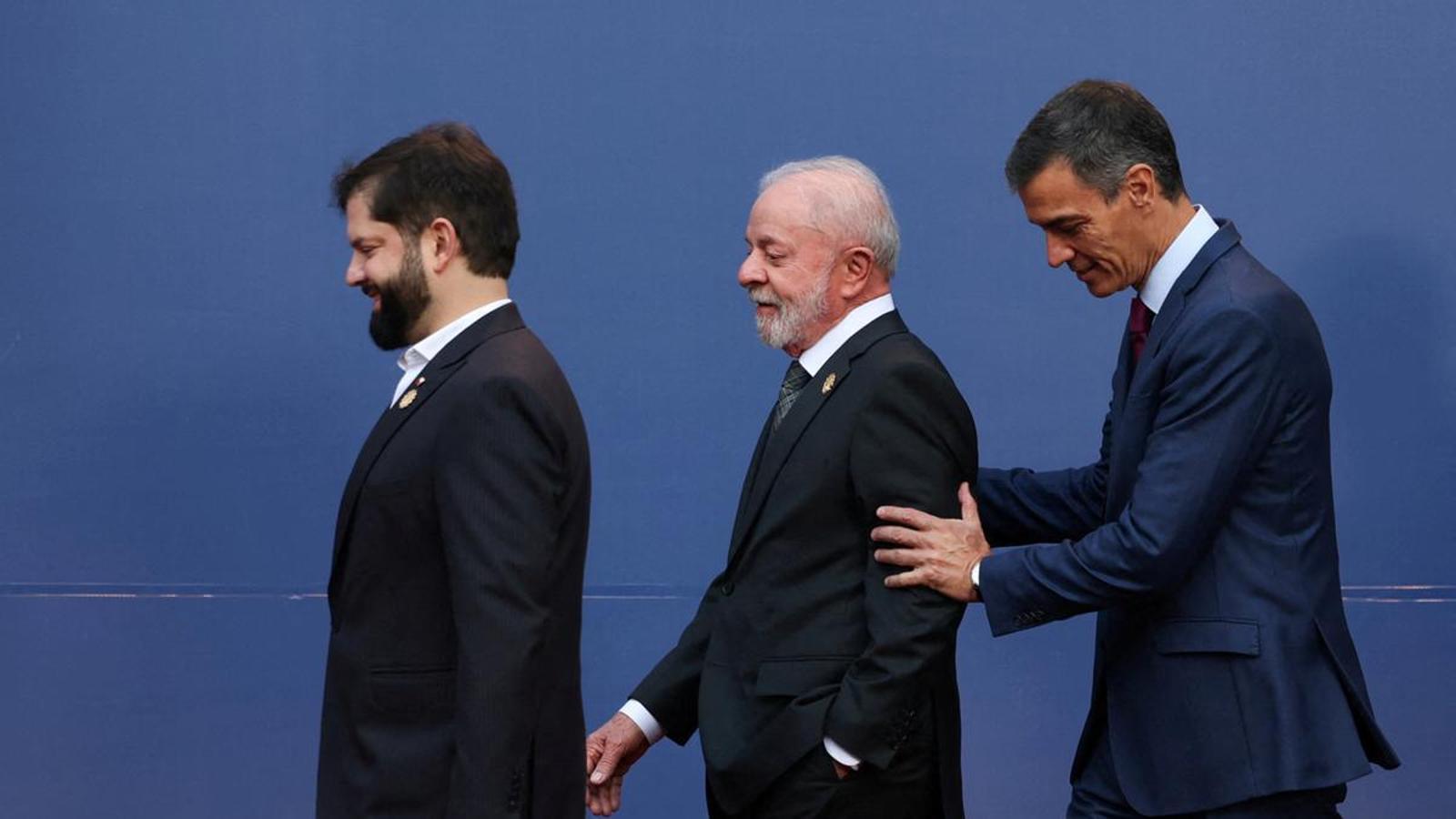Brussels bureaucrats complicate Sánchez's life: the amnesty, the takeover bid for Sabadell, and the Catalan government in the EU.
The Spanish president travels to Latin America as one of the most important leaders of the European social democratic family.


BrusselsIt's been a bad week for Pedro Sánchez's government in Brussels. The good news coming from Ursula von der Leyen's European Commission came to a screeching halt, and in less than five days, senior officials from the European institutions took aim at three key issues for the Moncloa: the amnesty law, BBVA's takeover bid for Sabadell and the official status of Catalan in the EU. Three times that come in the middle of the corruption cases that besiege the entourage of the Spanish president, Pedro Sánchez –now in the background due to what the Montoro scandal implies–, and before his trip this week to Latin America, where he plans to meet with several left-wing leaders and boost his image as a leader.
The first setback that the Moncloa received was from the legal services of the European Commission in the hearing on the amnesty in the Court of Justice of the European Union (CJEU) last Tuesday. Until Brussels sent its arguments to Luxembourg, pressure from the PP seemed to have had no effect and the community executive had avoided speaking out against a key law for Sánchez and his parliamentary alliance. However, the alleged Spanish lawyer of the European Commission Carlos Urraca It was devastating: he described the measure as a "self-amnesty" and asserted that it was not in the "general interest" and contravened EU law. A ruling by Urraca in court barely reached Brussels. Sánchez's attention, and the European Commission opened infringement proceedings against Spain for the obstacles it believes it is placing in the way of the takeover bid launched by BBVA against Sabadell. The takeover bid was presented to the Council of Ministers, although he asserts that the analysis carried out by the National Commission on Markets and Competition (CNMC) was sufficient.
The icing on the cake against Sánchez in Brussels came during the discussion on the official status of Catalan, Galician, and Basque at the EU General Affairs Council last Friday. As reported by ARA, the EU Council's legal services informed the Member States that the approval of the initiative presented by Spain would require a reform of the European bloc's treaties. Thus, the legal experts of this European institution dismantled one of the main arguments of the Moncloa, which insists that a legal modification of this magnitude is not necessary, and further complicated the path towards the official status of the native language of the Països Catalans.
Beyond EU officials, Sánchez also received advice from the rest of the Member States regarding the official status of Catalan. According to diplomatic sources in this newspaper, a group of a dozen countries led by Germany They flatly refused to accept the initiative and argued that it was legally unfeasible. They weren't even convinced by the Moncloa's proposal to link the approval of the official status of Catalan, Galician, and Basque to a favorable ruling by the Luxembourg court.
The last progressive makes the Americas
Sánchez has remained the main leader of the social democratic family in the most right-wing European Union in history. However, he has always tried to establish his own profile on many issues, such as immigration, environmentalism, Gaza, and the great rearmament;
The socialist leader will meet with five progressive leaders: Brazil's Lula da Silva, Colombia's Gustavo Petro, Uruguay's Yamandú Orsi, and Chile's Gabriel Boric, who is the host. They plan to appear together in Santiago, Chile, to launch a message against the authoritarian internationalist. Sánchez will also travel accompanied by business leaders from important state-owned companies, such as Sacyr, Renfe, Acciona, Indra, and BBVA, and the president of the CEOE employers' association, Antonio Garamendi.
